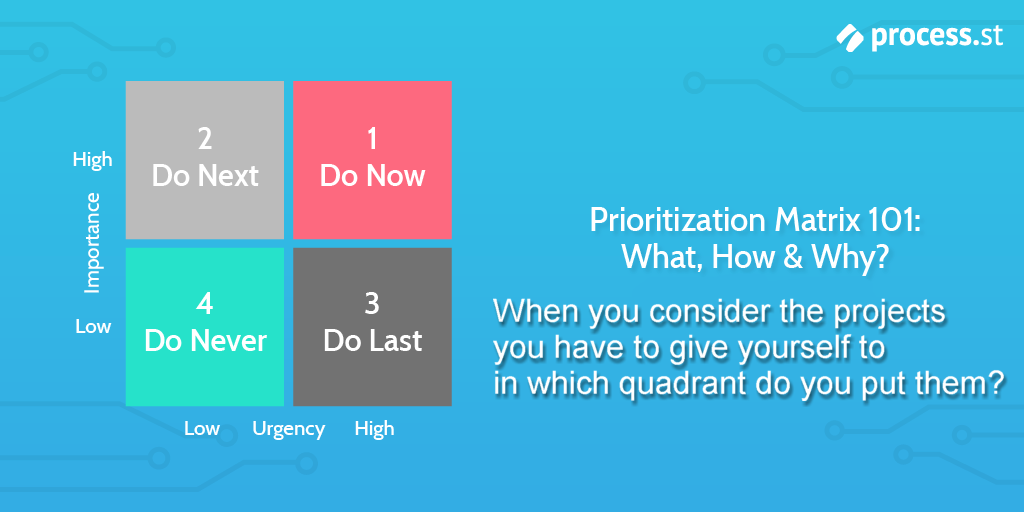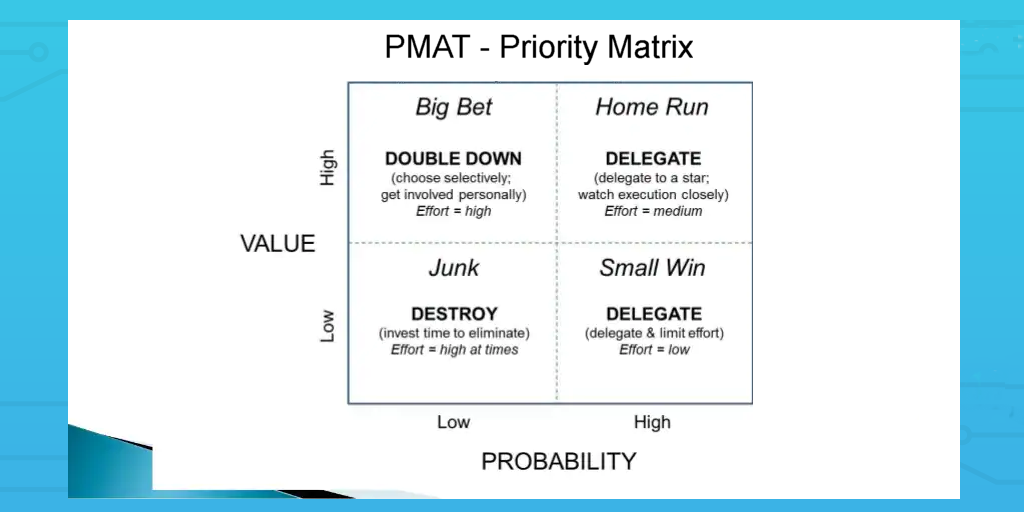
In the post, Section 9 of Self-Understanding, we explored the tensions we live in as a result of, the competing motivational tendencies of our conscious and unconscious needs and our living out both Gospel and human values. We noted the three consequent dimensions of behaviour that flow from these tensions; virtue-sin, consistency-inconsistency, health-pathology. These inner tensions influence our Christian living and have implications for our Christian decision-making. We would think, that what is important to us would have a priority in our actual decisions and actions, but this is not always the case. We have quoted the quandary of Paul a number of times, “For what I want to do I do not do, but what I hate I do” [Romans 7].
The skills associated with prioritizing are significant for religious life and for living our missionary identity with integrity. When we sharpen our focus and direction, energy becomes available for action in those priority areas.
In Section 10 of Self-Understanding, we will now delve into the dynamics of prioritization and examine how these dynamics influence and are influenced by our passion (our focussed intense desire or enthusiasm).
What is Prioritization?
To organize (things) so that the most important thing is done or dealt with first.
Sometimes this involves organizing a group of tasks, or intentions, and ranking them according to different criteria including but not limited to, how important it is, whether or not it is time sensitive, and how long it takes to complete. This helps us determine what should be focused on to achieve maximum productivity.
Why Prioritization is Important
Establishing priorities has a necessary impact on how we feel about ourselves. When we take on responsibilities and fail to deliver because we have poor time and organisational skills it influences our self-esteem, which in turn undermines our confidence. The flow on effect is a loss of interest, a growing indifference and apathy and a loss of energy and direction.
Prioritization is important because it will allow you to give your attention to tasks that are important and urgent so that you can later focus on lower priority tasks. If you do not take the time to prioritize, then you will have trouble getting things done on time, stress about everything, and not be productive.
Often, people keep track of everything that they have to do by creating a list. A list can be effective to see a birds eye view of what you need to focus on NOW in order to work efficiently, and save time and energy.
Exercise
- List ten ideals you strive for most highly (not people, places, possessions, but values).
- Number these one to ten. One being the most important, and 10 being the least important.
- List ten things you put most of my energy into. (What I give myself to most easily, willingly, am most energized by, etc)
- Number these one to ten. One being the most important, and 10 being the least important.
Your answers to Question 1 speak to you of the values you have. What you have listed are the things most important to you – what you want to give yourself to.
Your answers to Question 2 speak to you of the reality of your life. What your behaviour shows you are most inclined towards – what in reality you do give yourself to.
One is the priority that you would like to have; the other is the priority you do have.
Do your answers match?
Or do you find that what is important is not what gets most of your attention and energy?
What does this say to you about you and the priorities that you have in life?
What does it say about your priorities towards Jesus Christ?
- List the 10 most important values in religious living. Number them as before.
- List the 10 most important values of Jesus. Number them.
- Compare these with your own list of values.
Prioritization means putting what is really important first.

If I put effort and energy into something it will grow – whether it is a Gospel value or a human value or a need. I make something a priority in my life by the amount of attention I give to it. I will give adequate time and preparation for doing the things that have my highest priority. I will think a lot about these things. Other things in my life will always take second place to what is my first priority. No matter what my words say to the contrary, I will always consider everything else in the light of my first priority. Change means my priorities have changed.
The implications of this for my living as an MSC are very significant. What enables me to direct my energies towards Jesus himself, the call to the prophetic life, to give myself to the congregational mission, all rest on the actual priorities out of which I live. Prioritizing then helps us to see more clearly where the inconsistencies are between what we preach we do and what we actually do.
Are there changes I need to make to my life, in order to get my priorities straight ?
What to Prioritize?
- Is this a pressing priority, meaning does this have a deadline looming up, and consequences if it is not met? For example, a work obligation that needs to be done by tomorrow night. These tasks need to be attended to NOW.
- Is it a crucial priority, meaning that this item must be done, but there is no pressing deadline right now? For example, a work obligation that will take approximately a day that is due next week.
- Is this a non obligatory priority? This means that there are no consequences if it is not completed and most likely not a deadline. For example, watching tonight’s football game.
- When prioritizing, it is also important to consider where each item ranks in comparison to other items.
Prioritizing Goals
There is so much that we desire to accomplish in our lives – goals, hopes, dreams, aspirations, visions.
- Which goal(s) do I think about the most?
- Which goal(s) would give me the most energy if I could commit to it now?
- What accomplishments would make me feel the most proud of myself?
- Which accomplishments can I take with me forever, and/or which accomplishments would seem the most permanent to me? Is this important to me?
- In ten years from now, how important will the goal be to me?
- Which goals are in line with my true values?
- Which goals are fully within my control, and not too dependent on other people or circumstances?
- Is this goal an external ‘should’ or an internal desire?
- What do I have a sense of urgency to get on with right away?
- If I could take action in spite of my fear, what might I want for myself right now?
- Which goals give me a heavy or lethargic sensation when I think about them, and which goals give me a positive “rush” of endorphins when I think of them?
- Which goals and their required efforts best fit into the “flow” or pace of my life? Which fit best within my current life context and/or circumstances?
Goals are not the actions that you take, but rather the measure by which you can reach what you want. They show you if you are moving in the right direction. Now, in order to get closer and closer to your goal, you must decide what steps you take to help you get there.

When you think of projects, think broadly. The projects you may need to consider may include your vocational discernment, your spiritual practices, or your ministry choices. Prioritization may work hand in hand with the process of spiritual discernment. There may be higher purposes that need your prioritizing rather than what you have for breakfast!!
A prioritization matrix can help us decide which projects are the most crucial to bring you closer to your end goal. This will help you classify potential projects by looking at factors such as advantages of completing the potential project and importance. Using this method, you will rank each aspect of the projects you would like to complete and then compare the rankings to determine which ‘projects’ are the best use of your time.

Once you decide, you will work on those important projects and put others aside for the time being.
During this process, It is important to note your goals so you can create the best plan of action.
To determine which projects are of greatest importance, start by creating a list of all of the projects that you would carry out. Then:
You will create a list of criteria to help you assign each project a rating. A good number of criteria would be anywhere from about 5-15. These criteria will allow you to evaluate whether the project is imperative or not, and consider what (if any) value it would bring upon completion. Make sure that these are concrete, yet specific to maintain persistency when rating. You will want to put these in order from the most important initiatives to least important initiatives. Some basic examples could be:
- Financial implications: Will this project be financially viable, and if so what are the repercussions?
- Complexity: Will this project will be easy to complete or will it be time consuming and complex?
- Chance for success: Is there a possibility that this project will fail, and if so are there consequences?
Decide the weight of the benchmark with 10 being that it is extremely important and 1 being that it is not so important if it is not met. This will put into effect that fact that some of these criteria are more important than others. Repeat this process for each project and then look at all of the weighted ranks. At this point, you will have an idea of which projects you should focus on for the best result.
Big Bet, Home Run, Small Win, Junk
Daniel Shapero came up with the project prioritization matrix as a way to to decide which projects you should focus on and which ones you should put aside to help you prioritize your projects. In this instance he is looking at how leadership and team collaboration might work to accomplish tasks using the prioritization matrix.
Just because a project is important, it does not mean that it will add any value to what you are trying to achieve. When going through potential projects, he asks himself two questions:
- What is the VALUE of the project if it succeeds?
- What is the PROBABILITY of it succeeding?
From there, he put the projects into the Priority Matrix.

So what does each quadrant mean?
Big Bet – These projects must use the skills and knowledge of the top dog. Thus, leader in charge must dedicate time to oversee the project, at least at the beginning. As the leader “doubles down” and gets personally involved, the project is more likely to end up accomplished. The project may be delegated once the leader ensures that the project will succeed, thus becoming a home run.
Home Run – You want to spend a majority of your time focusing on the big bets. If the project has a high probability of succeeding, this is when the leader delegates the task to a top team member. This team member must have the potential to carry it out. As always, when delegating any type of task, you must be clear in your directions and open to answering questions. Check in at least once a week to make sure they are on the right track.
Small Win – Small Wins are delegated to team members, but not the star team members like in the home runs. The leader does not have to keep an eye on a small win as much as they would for a home run because it is of less importance.
Junk – This is the leader’s time to wipe out all of the junk projects that are holding the energy back. Once you get rid of the junk that’s holding you back, you can focus on what gives life and energy.
The project prioritization matrix is one methodology, there are many other methodologies for prioritization that you can research and most are available for free on the internet.
